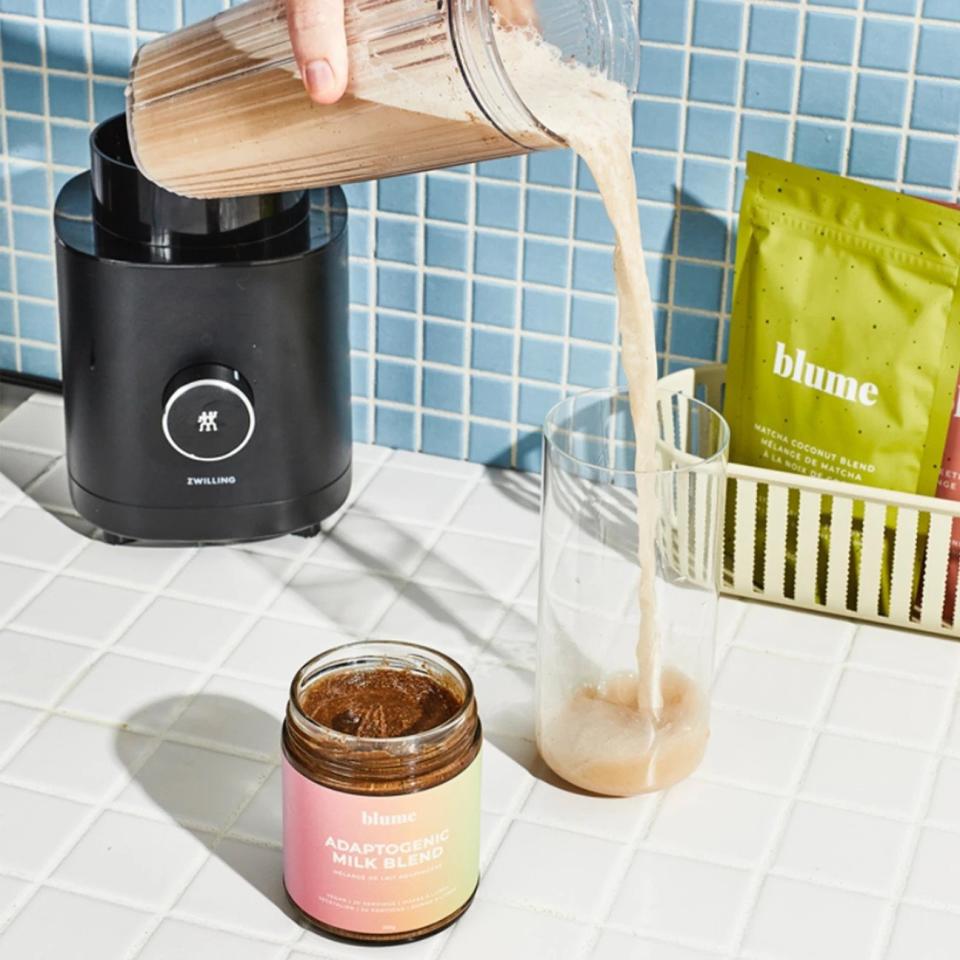What Are Adaptogens and Can Eating or Drinking Them Make You Healthier?
From coffee to alcoholic spirits, it seems like every new food product you see claims to be adaptogenic these days. Let's get real, though: What are adaptogens, are they good for you, and how should we be consuming them, if at all? "There are many different types of adaptogens, with a variety of effects and therefore various benefits. They all share the ability to help our bodies adapt to stress." many cultures around the world- sometimes for hundreds or possibly thousands- of years," says Andrea T Fossati, MD, Integrative Medicine, UVM Integrative Health Program. Read on for our comprehensive guide to adaptogens in food.
Related: What Is a Plant-Based Diet?
What Are Adaptogens?
Adaptogens are plant-based substances (think: herbs and mushrooms) that may help to reduce stress and anxiety while improving energy levels. "They are believed to have strong healing power against not only stress but inflammation and fatigue," says Brandi Muilenburg, an Integrative Nutritional Health Coach working on a doctorate in Integrative and Functional Nutrition.
Used in traditional Chinese medicine for centuries and in Western medicine since at least the 1940s, adaptogens are found in many herbal supplements and even in your kitchen. "They have been used in many cultures around the world- sometimes for hundreds or possibly thousands- of years," says Dr. Fossati. "I use them in my integrative medicine practice at UVM to bring a more natural adjunct to care, and to help 'fill in the gaps' of usual care."
What Are Some Common Ones?
You probably have a common adaptogen in your spice rack right now. One of the most notable adaptogens is turmeric. The vibrantly-colored spice contains the anti-inflammatory compound curcumin and is also known for its antioxidant potential. Other common adaptogens are goji berries (which many support immune and eye health), licorice root with the chemical compound glycyrrhizin (which gives it antioxidant, anti-inflammatory, and antimicrobial properties); lion's mane (which may help to reduce stress and improve brain function); and ashwagandha which has been used for centuries to reduce stress.
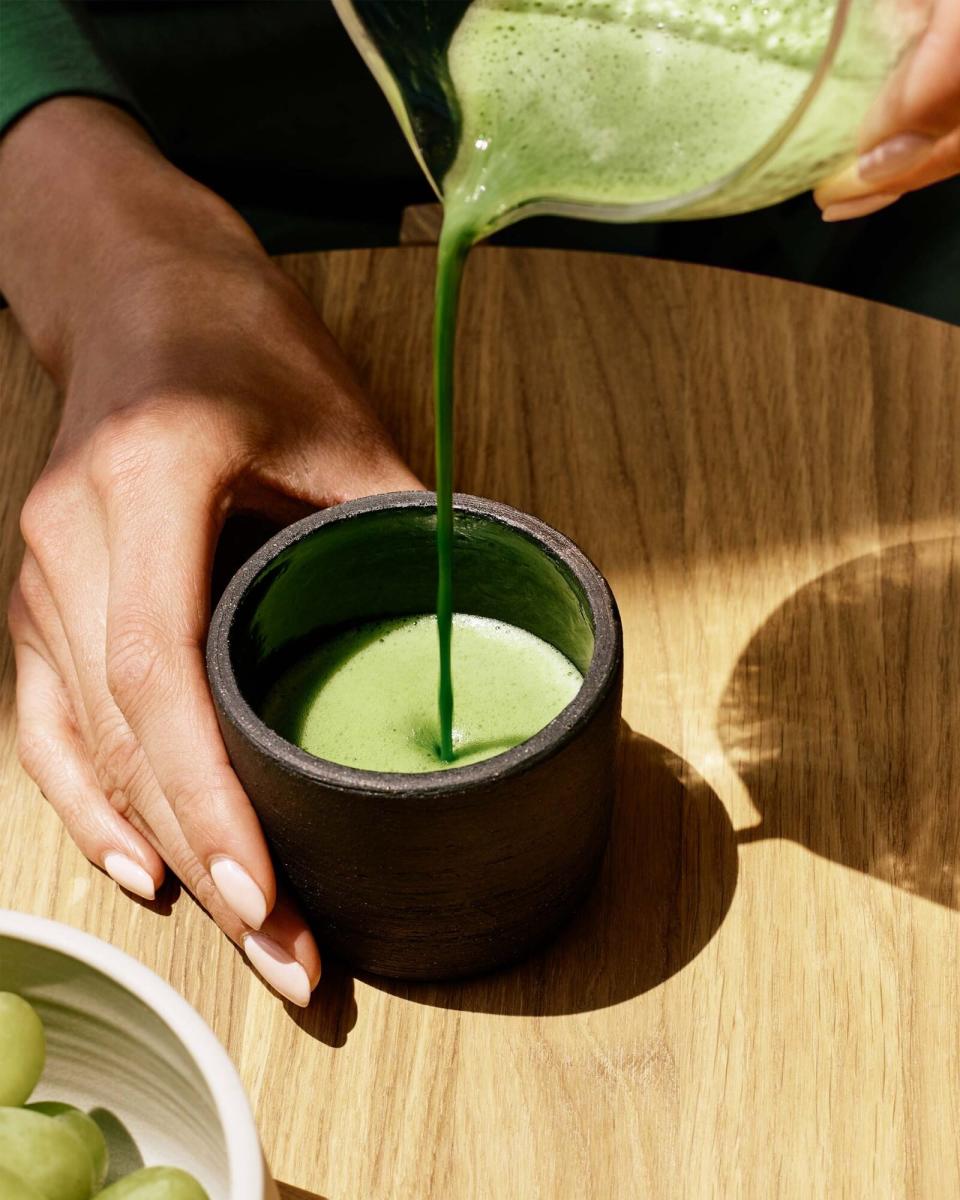
Courtesy of Nekohama
Why Am I Seeing So Many Food and Beverage Products with Adaptogens Right Now?
While adaptogens have always been in food products, you're not wrong to think you're seeing them everywhere. In the past five years, food brands have begun to invest significant capital into researching and developing adaptogen food brands. Think Starbuck's Turmeric Latte, GT's Living Foods, ALIVE, line of adaptogenic teas inspired by Ayurvedic medicine, and many more. The adaptogens market is expected to grow from $2.4 million in 2019 to $3.9 million by 2025. Several factors are driving that growth: As consumers, we're more aware than ever before of what is in our food, there's more interest in alternative forms of medicine, and the CBD buzz of a few years ago has made adaptogens seen as a substitute.
Kal Freese, co-founder and head of product for Taika, had been working in coffee for more than a decade when he started to have side effects from coffee including feeling jittery and anxious. "How could I allow myself to drink more coffee, because I love to drink coffee, without having to deal with all these sides effects and that's what I decided discovering adaptogens." The result was Taika Coffee, a line of vegan and keto-friendly canned coffees that include five adaptogens to help to mitigate adverse side effects of caffeine while increasing functionality.
Is There Anything I Should Know Before Buying Using Adaptogens?
In general, adaptogens are very safe, but while Muilenburg is a strong supporter of them, she does note that just because something is natural doesn't mean it's suitable for everyone. "I recommend talking with your health care provider before starting any new supplements or herbal treatments. The reason for this is that they can interact with certain medications. It is also important to ensure you do not have an allergy that would make adaptogens a problem for you," she says.
It's also important to note that these are not a cure-all. While adaptogens might reduce your stress symptoms, they won't make your stress go away. And if you're buying a food product with adaptogens, you should, of course, read the labels to make sure you're getting the purest form of vitamins and minerals. "Some brands do use fillers and sugars so you want to make sure you avoid these brands as well," says Mulienburg.
How Should I Use Them?
You can add adaptogens to your diet naturally: think sprinkling on a bit of turmeric into your morning coffee or adding matcha to your morning routine, or you can buy pre-made foods and beverages with them. Just remember that consistency is one of the keys.
"Adaptogens are best used on a regular basis, and it can take several weeks to really achieve a therapeutic effect and balance in your system," says Dr. Fossati. "I advise patients to try each new adaptogen for a month or two, consistently, to see if there is benefit. Adaptogens work gently on the system, and need time to effect changes."
Best Adaptogen Food Products to Try
Ready to give this wellness trend a go? Here, five different adaptogen foods worth trying right now.
Acid League's Coffee Chaga Maple Living Tonic
Here's an apple cider vinegar tonic that blends dark roasted maple cold brew with chaga mushroom.
Shop Now: Acid League's Coffee Chaga Maple Living Tonic, $60 for three 300ml bottles, acidleague.com.
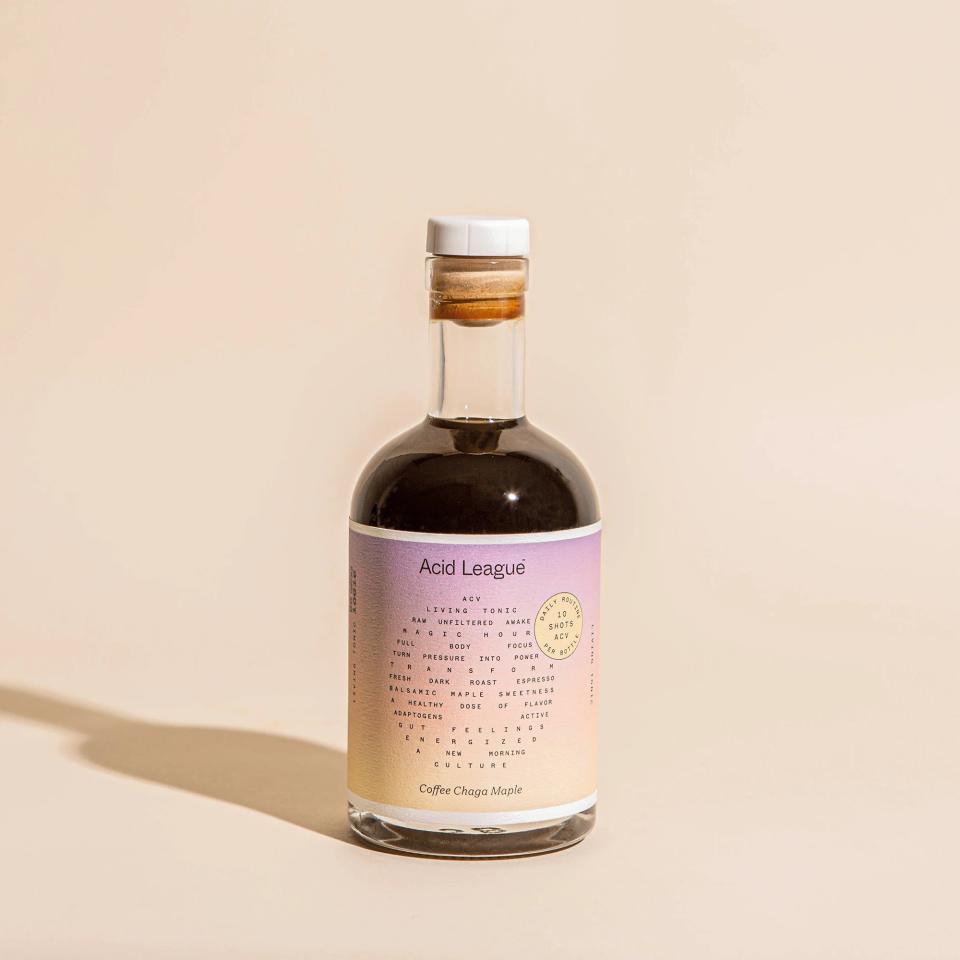
Nekohama Ceremonial Matcha
Often consumed to help balance energy, matcha is a natural nootropic (L-theanine benefits) and also contains other antioxidants that help with inflammation. Sold within six months of harvesting, Nekohama matcha is grown in nitrogen-rich volcanic soil in Kyushu, Japan.
Shop Now: Nekohama Ceremonial Grade Matcha, from $20, nekohama.com.
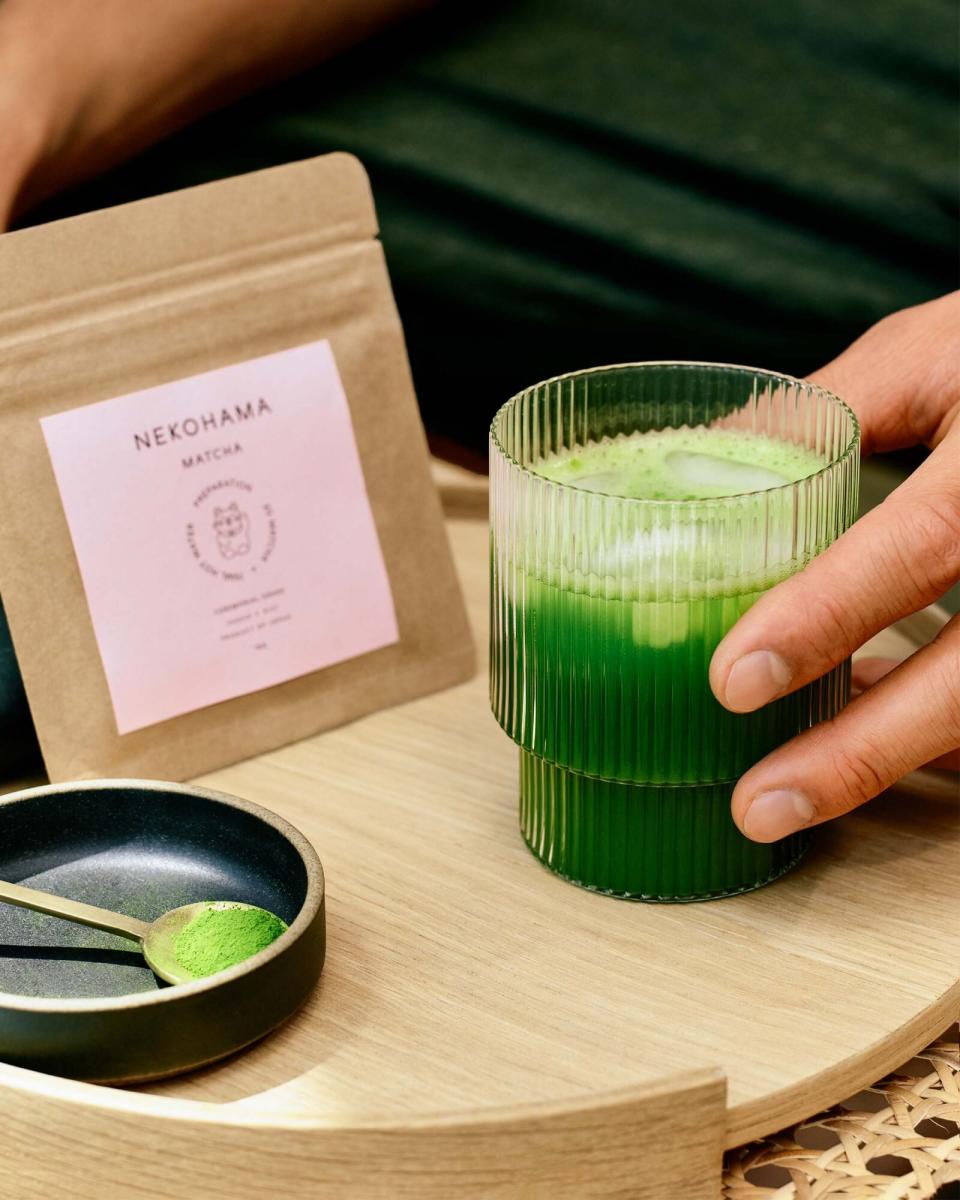
Taika
A canned drink that pairs coffee and matcha with five adaptogens (L-theanine, Ashwagandha, Lion's Mane, Reishi, Cordyceps miltaris). Blends include Black Coffee, Oat Milk Latte, Macadamia Latte, and Matcha Latte.
Shop Now: Taika Sample Pack, $36 for six 8.4-ounce cans, taika.com.

GT's ALIVE Adaptogenic Tea
A sparkling drink that pairs loose leaf tea with an infusion from adaptogenic plants (reishi, chaga, and turkey tail). Flavors include Black Lemon, Matcha Vanilla, Mate Mint, Pu-Erh Root, Cascara Spice, and Guayusa Turmeric.
Shop Now: ALIVE Ancient Mushroom Elixir, $3.99, instacart.com.
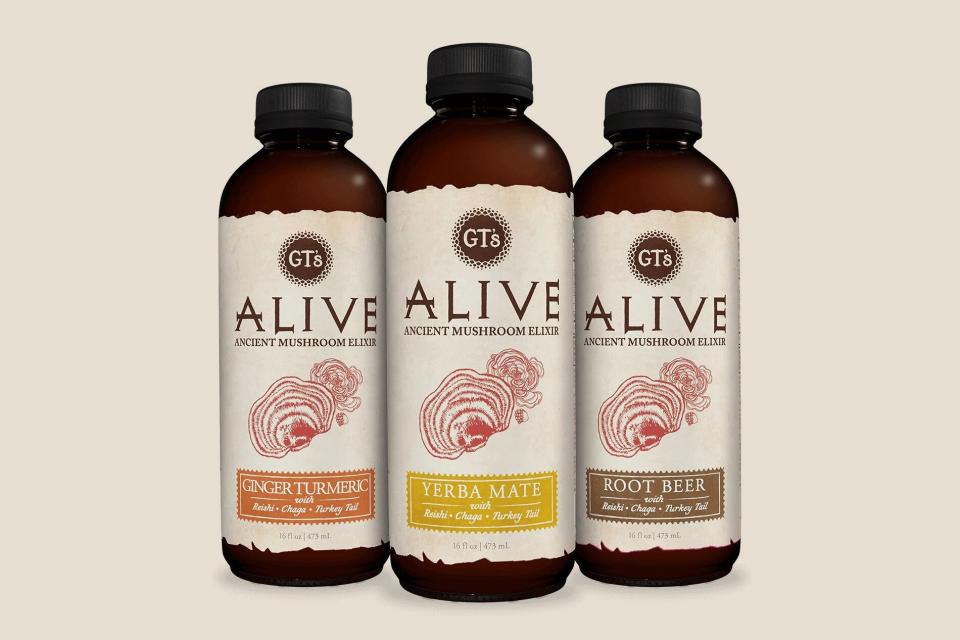
Blume's Adaptogenic Milk Blend
A nut milk powder made with a blend of adaptogens, reishi, cordyceps, chaga, and lions mane. You mix it with water to create a rich, versatile nut milk.
Shop Now: Blume's Adaptogenic Milk Blend, $25, itsblume.com.
